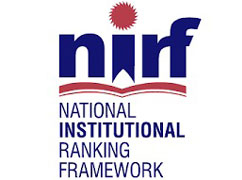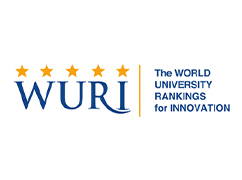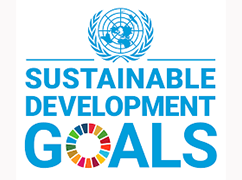The PhD program at CHRIST (Deemed to be University) is a unique space for researchers who have embedded practices in the larger discipline of design and are interested in collaborative critical thinking with transdisciplinary connections. The 3- year Doctoral Program focuses on transdisciplinary inquiry in design, architecture, art, urbanism, humanities, psychology, culture, heritage and sustainability with creative and experimental practices being at the core of research. The PhD program equips its scholars with research, critical thinking, theoretical engagement and writing skills providing structured course work and expert guidance.
The PhD program at CHRIST (Deemed to be University) is a unique space for researchers who have embedded practices in the larger discipline of design and are interested in collaborative critical thinking with transdisciplinary connections. The 3- year Doctoral Program focuses on transdisciplinary inquiry in design, architecture, art, urbanism, humanities, psychology, culture, heritage and sustainability with creative and experimental practices being at the core of research. The PhD program equips its scholars with research, critical thinking, theoretical engagement and writing skills providing structured course work and expert guidance. There are various qualified guides, within the School of Architecture, with doctorates in various disciplines. We have collaborations from School of English and Cultural Studies and Psychology Department presently to support transdisciplinary research. They have been included in the Research Advisory Committee of many of the scholars presently working with the school.
The scholars are required to complete course work that prepares them for undertaking research and includes courses on research methodology, research ethics, publications among others.
Scholars develop a proposal which is ratified by a committee according to the University regulation.
After the formal approval of the PhD proposal scholars work intensively with their respective guides and the RAC to further their research. This has intermediate evaluation that qualify the scholars to finally undertake the final external evaluation, to be then awarded the degree.
Currently we have 17 active scholars working on varied topics of research. Some of the topics are as mentioned below. More information on guides and experts in the School of Architecture could be obtained from the faculty page.
Integrated Citizen Participatory Approach in Urban Redevelopment Process- Deepthi Adiga
The Confluence of Material Culture of Filmmaking and Architecture in India – Richard Manoharan
The Confluence of Material Culture of Filmmaking and Architecture in India – Richard Manoharan
Developing Hierarchical Green Building Performance Criteria Determining Efficacy of Occupants in Institutional Building – Abinaya J
A Correlation of Virtually Designed Urban Street Environment and Human Psychophysiology – Shynu R V
An Integrated Policy Framework to Reduce Vulnerability of Coastal Communities Due to Urbanisation – Vijaya Hegde
Integrated Watershed Management and Urban Design to Develop Resilient Coastal Cities – Gayathri Pramod
Exploring the Potential of Diagramming as a Tool in Design Communication and Design Thinking – Elsa Anna Simon
A case of Bengaluru, India – Mamatha
A Case of Bangalore – Betty Chacko
Students who have completed their post-graduation from an international university must submit an equivalency certificate from the Association of Indian Universities (AIU).
| Year | # Indian Nationals (Full time PhD) | Indian Nationals (Part time PhD) | #Foreign Nationals / OCI / PIO (Full time PhD) | Foreign Nationals / OCI / PIO (Part time PhD) |
|---|---|---|---|---|
| 1 | 60,000 INR | 80,000 INR | 750 USD | 1000 USD |
Time of Payment: All the candidates have to pay the I Year fee immediately after confirmation of the admission. For subsequent years, fees must be paid annually on or before 15th March.
#The fee for Full Time PhD Scholars, as indicated in the table, is the actual fee payable and excludes the scholarship amount.
It is to be noted that though the fee is fixed for two years, there may be a periodic nominal increase to meet the rise in costs.
(The above condition is not applicable to NRI and candidates applied under NRI Category).
Online Application form
| To provide an education in the field of the built environment that recognizes its interdisciplinary nature between architecture, ecology, social, economic, and political realms. |
| To offer learning that encourages a collaborative and interdisciplinary approach and bridges the gap between academics and practice. |
| To offer education and conduct research on pertinent urban and ecological issues of the global south and specifically in the context of Asia. |
| To provide an education that makes students understand the roles and responsibilities to effectively find informed solutions through design, advocacy, and activism. |
| To offer courses that are domain-specific, issue-based that are relevant and contemporary. |
| To provide for choice-based credit systems so that students can specialize in the subject of their choice. |
Address
Dharmaram College Post, Hosur Road, Bengaluru – 560029, Karnataka, India
Telephone
+91 804012 9100 / 9600
Send us a Fax
40129000
Mail Us At
mail@christuniversity.in







